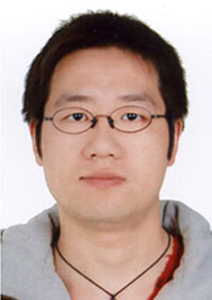Program Information
BEST IN PHYSICS (IMAGING) - A Hybrid 4D Cone Beam CT Reconstruction Algorithm for Highly Under-Sampled Projections From the 1-Minute Cone Beam Scan
H Yan1*, x zhen2, M Folkerts1, T Pan3, L Cervino1, S Jiang1, X Jia1, (1) Center for Advanced Radiotherapy Technologies, University of California, San Diego, San Diego, CA, (2) Southern Medical University, Guangzhou, China, (3) UT MD Anderson Cancer Center, Houston, TX
TH-C-103-8 Thursday 10:30AM - 12:30PM Room: 103Purpose: To facilitate fast and accurate 4D image guidance for lung and upper abdomen radiotherapy, we propose a novel 4D cone beam CT (4D-CBCT) reconstruction algorithm that offers high-quality images from highly under-sampled projections under the conventional 1-min CBCT scan.
Methods: As opposed to conventional reconstruction approaches via image intensity domain, our method integrates patient-specific CT information and reconstructs 4D-CBCT image via motion vector domain. It solves an optimization problem, where a deformation vector field is determined, such that, when being used to deform the patient prior CT image, the projections match the measurements. We develop a forward-backward splitting (FBS) method to solve this problem. Specifically, an intermediate variable is introduced to split the original problem into two iteratively preformed sub-problems, i.e., reconstruction of the intermediate variable based on projections and the currently reconstructed 4DCBCT image, and deformable registration between the prior image and the intermediate variable. This hybrid algorithm achieves a solution with both right geometrical information defined by measured CBCT projections and correct intensity values from the prior CT, yielding high quality 4D-CBCT images. Both experiments on a moving ball phantom and patient studies have been performed to validate the proposed method.
Results: Even with very limited number of projections from a 1-min CBCT scan, artifacts-free 4D-CBCT images with correct HU values can be obtained by the proposed algorithm in both phantom and patient studies. To validate the anatomical geometry accuracy, the ground-truth ball center location along the superior-inferior direction is compared to that measured in the reconstructed 4D-CBCT. Satisfactory agreements (0.364mm average and 0.504mm maximum error) are observed.
Conclusion: A hybrid 4D-CBCT reconstruction algorithm is developed for highly under-sampled projections from the conventional 1-min CBCT scan. It is capable of reconstructing high-quality images free of under-sampled streaking with accurate HU values.
Funding Support, Disclosures, and Conflict of Interest: This work is supported in part by NIH (1R01CA154747-01), Varian Medical Systems through a Master Research Agreement, the Early Career Award from Thrasher Research Fund, and the University of California Lab Fees Research Program.
Contact Email:


